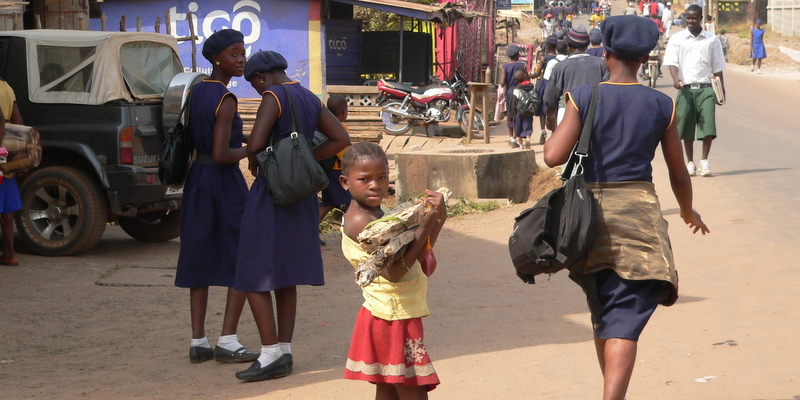
April 29, 2014, by ICCSR
Unpaid Care Work: The Unmentionable Issue?
In February I was invited by Oxfam to speak at a learning event for their Gender and Development Journal. Alongside NGOs and agencies from around the UK and the world, we spent two days discussing women and men’s unpaid care work, why it matters and how it can be made more central to development (and by proxy) sustainability agendas.
Care is gendered. Women around the world (the UK included) carry out more home-based tasks, such as childcare, eldercare, cleaning, cooking, fetching water or fuel, driving the children to ballet class, and so on, than men[1]. Time is a resource, and one that for many of us often feels in short supply! Yet beneath the taken-for-granted ‘triple-shift’ is a deadly reality. Unpaid care work is a crippling time-burden that continues to have huge effects on women’s opportunities, economic growth and, most importantly, human wellbeing. Care, therefore, is a human rights issue.
I am glad to see that CSR, and businesses in general, are beginning to address gender inequalities both at home and in host countries. Development interventions, either powered by NGOs or business, which aim to ‘economically empower women’ through increased access to labour markets, seem to be growing at an elaborate rate. They can help lift women and men out of extreme poverty. Yet many individuals in the Global South live and work in contexts with weak infrastructure and poor welfare systems. This means that a woman may work her farm, take care of children, sell home-cooked food for extra income, prepare family meals, clean the home, care for small livestock and travel miles each day for water. If her husband falls ill, she will have to nurse him without state help. Arguably development interventions are doomed to fail in situations where unpaid care work takes up so much time and energy. Where on earth does the woman described above find the time to engage in a well-meaning CSR project? Did the designers of the project consider her unpaid care work, or think about what her involvement might mean in terms of knock-on effects? More positively, think how much more could be achieved if both women and men had more time to engage not only in economic activities, but in leisure and education.
Looking at the bigger picture, feminist economists have been arguing for decades that women’s unpaid care work is the backbone of capitalism, indeed, of organisational life.[2] Care, especially childcare, is arguably a public good that is crucial to the continuation of life, economies and business.[3] For businesses engaged in CSR and sustainability, where the focus lies so much on future generations, caring for the carers is a key issue. It is also a deeply neglected issue.
Can we ever get away from the argument that the capitalist system continues to knowingly exploit those that carry out unpaid care work? What is the role for forward-thinking business here? For those that want to do things differently, who want to go beyond business as usual? The Body Shop International has begun to pay women for their care work as part of the pricing of fair trade products[4]. Others have paved the way in terms of flexible-working, free childcare services and equitable parental leave, going above and beyond minimum standards set by governments. Freeing up time for work and play enhances human wellbeing.
Making women and men’s lives outside of the nine-to-five relevant to business is a challenge, but one that CSR scholars and practitioners might do well to take up. More needs to be done to make unpaid care work part of our human rights discussions; alliances must be built and voices heard[5]. For whilst women across the world continue to shoulder a huge time burden, with economic, social, political and environmental consequences, the business and human rights agenda will struggle to be fulfilled.
[1] World Bank (2011). World Development Report 2012: Gender Equality and Development. Washington, DC, USA: The International Bank for Reconstruction and Development/ The World Bank.
[2] Waring, M. (2004) Counting for Nothing. 2nd Edition. University of Toronto Press: Toronto.
[3] Folbre, N. (1994). ‘Children as public goods’, The American Economic Review 84 (2): 86–90.
[4] Hoskyns, C.; Hoskyns, N & Butler, F. (2012) ‘Pricing Fair Trade Products to Include Unpaid Labour and Empower Women: The Example of Nicaraguan Sesame and Coffee Cooperatives’ Oñati Socio-Legal Series, Vol. 2, No. 2. At: http://papers.ssrn.com/sol3/papers.cfm?abstract_id=2034322
[5] See Eyben, R. (2013) ‘Getting Unpaid Care onto Development Agendas,’ IDS Policy Briefing. Issue 31, Jan 2013.
——————-
By Lauren McCarthy
Graduate Teaching Assistant and Doctoral Researcher, ICCSR
Nottingham University Business School
Image by Lauren McCarthy, 2009
Bo, Sierra Leone
No comments yet, fill out a comment to be the first

Leave a Reply